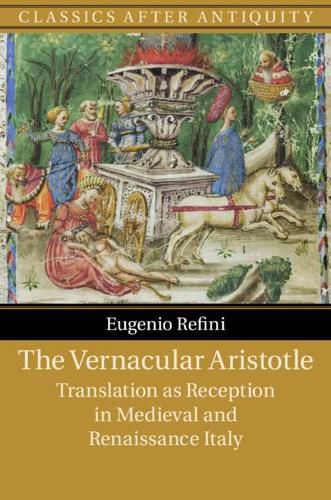Readings Newsletter
Become a Readings Member to make your shopping experience even easier.
Sign in or sign up for free!
You’re not far away from qualifying for FREE standard shipping within Australia
You’ve qualified for FREE standard shipping within Australia
The cart is loading…






This book explores the ways in which Aristotle’s legacy was appropriated and reshaped by vernacular readers in Medieval and Renaissance Italy. It considers translation in a broad sense, looking at commentaries, compendia, rewritings, and abridgments alongside vernacular versions of Aristotle’s works. Translation is thus taken as quintessential to the very notion of reception, with a focus on the dynamics - cultural, social, material - that informed the appropriation and reshaping of the ‘master of those who know’ on the part of vernacular readers between 1250 and 1500. By looking at the proactive and transformative nature of reception, this book challenges traditional narratives about the period and identifies the theory and practice of translation as a liminal space that facilitated the interaction between lay readers and the academic context while fostering the legitimation of the vernacular as a language suitable for philosophical discourse.
$9.00 standard shipping within Australia
FREE standard shipping within Australia for orders over $100.00
Express & International shipping calculated at checkout
This book explores the ways in which Aristotle’s legacy was appropriated and reshaped by vernacular readers in Medieval and Renaissance Italy. It considers translation in a broad sense, looking at commentaries, compendia, rewritings, and abridgments alongside vernacular versions of Aristotle’s works. Translation is thus taken as quintessential to the very notion of reception, with a focus on the dynamics - cultural, social, material - that informed the appropriation and reshaping of the ‘master of those who know’ on the part of vernacular readers between 1250 and 1500. By looking at the proactive and transformative nature of reception, this book challenges traditional narratives about the period and identifies the theory and practice of translation as a liminal space that facilitated the interaction between lay readers and the academic context while fostering the legitimation of the vernacular as a language suitable for philosophical discourse.